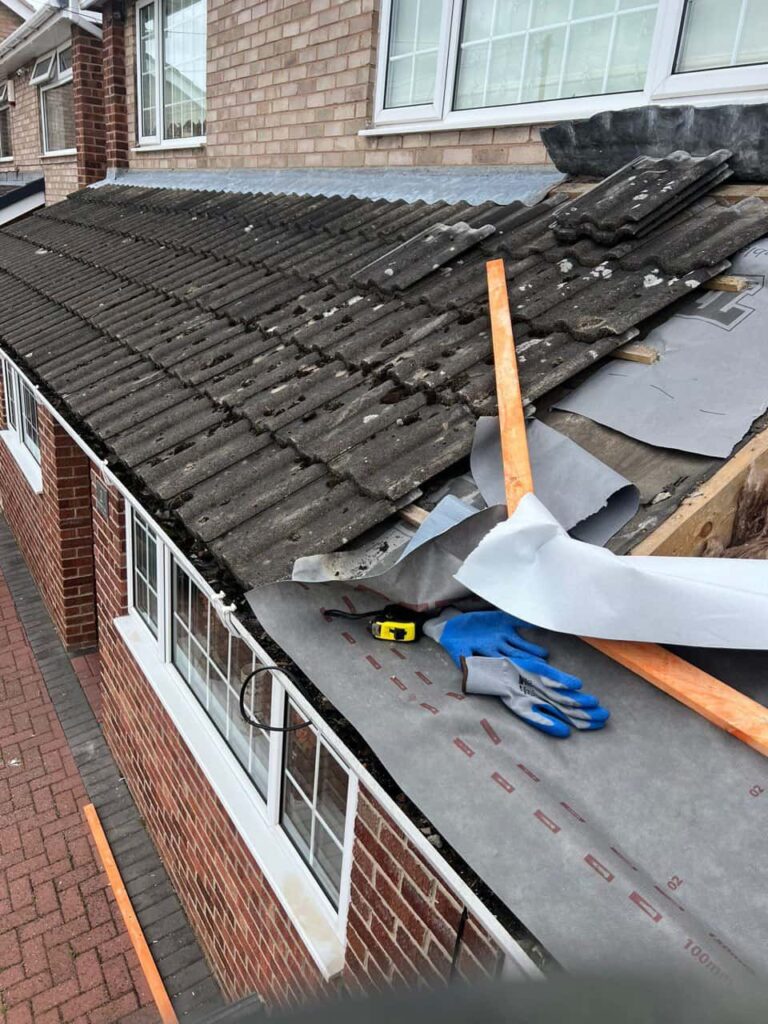Introduction
It usually begins with something subtle — a faint water stain on the ceiling, a tiny drip during a downpour, or perhaps a musty smell in the loft. At first glance, it feels like nothing urgent, maybe just a cracked tile or blocked gutter. But the truth is, small roof leaks have a sneaky way of becoming big, expensive problems when left unattended.
In Portsmouth, where coastal weather plays a significant role in roof wear and tear, spotting and addressing early signs of a leak is critical. At Portsmouth Roofing Repairs, we often respond to cases where a minor issue, had it been caught earlier, could have saved considerable hassle, cost, and property damage. This article explains why roof leaks often start so subtly — and how they end in disaster if ignored.
Why Roof Leaks Seem Minor at First
Slow Progression and Concealed Damage
Unlike burst pipes or sudden structural failures, roof leaks usually progress slowly. Water finds its way through tiny vulnerabilities — a cracked tile, worn flashing, or loose ridge cap — and trickles down insulation, beams, and plaster before showing visible signs. This slow intrusion gives a false sense of security.
By the time you see evidence inside the home, the water may have already travelled metres from the original point of entry, soaking timber, corroding nails, and compromising insulation.
Seasonal Patterns and Intermittent Symptoms
Many leaks are seasonal, worsening only during heavy rain or windy weather. That can make them tricky to spot and easy to ignore during drier months. What seems like a one-off may actually be part of a recurring pattern, masked by changing weather conditions — something we frequently encounter here in Portsmouth.
The Real Impact of Ignoring a Leak
Cumulative Structural Damage
Water doesn’t just sit. It seeps, spreads, and settles into vulnerable areas like joists, rafters, and plasterboard. Over time, this causes:
- Timber rot and weakened roof supports
- Swelling or cracking of interior walls
- Sagging ceilings and loft floorboards
- Mould growth and poor air quality
When damage becomes structural, the repair scope increases significantly — both in complexity and time required.
Electrical Hazards and Fire Risks
Few homeowners realise how dangerous water infiltration can be around wiring. A minor leak dripping onto light fixtures or running along a cable channel can create short circuits or increase fire risk. Damp and electrics simply do not mix, which is why fast action is crucial when a leak is suspected.
Insulation and Energy Efficiency Loss
Insulation is one of the first materials to suffer in the path of a roof leak. Once it becomes wet, it loses effectiveness, resulting in:
- Higher heating bills
- Cold spots and temperature inconsistencies
- Increased humidity in the home
At Portsmouth Roofing Repairs, we’ve seen many homes where poor insulation caused by leaks led to further condensation and, ultimately, more leaks — a vicious cycle easily avoided with timely intervention.
Common Causes of Hidden Leaks
Understanding where and how leaks originate helps with early detection. Here are some of the usual suspects:
- Cracked or missing tiles from storm damage
- Blocked gutters causing water to back up under roof edges
- Failed lead flashing around chimneys, skylights, or dormers
- Worn underlay or felt deteriorating beneath the roof surface
- Loose ridge tiles or hip caps displaced by high winds
Portsmouth’s coastal location means our roofs face added exposure to salt-laden air, strong gales, and sudden downpours — all of which accelerate wear and tear. Routine inspection and maintenance are key to staying ahead of problems.
How Early Action Saves You Time and Money
Prevent Escalation
Fixing a slipped tile or resealing flashing is a straightforward job when caught early. But wait until the leak affects internal plaster, wooden frames, or electrical systems, and you’re dealing with days — sometimes weeks — of work. Swift action avoids escalating costs and complexity.
Preserve Property Value
A leak, no matter how small, can damage your home’s resale appeal. Damp walls, warped paint, and patchy ceilings are red flags to prospective buyers. By maintaining your roof, you not only protect your investment but enhance long-term marketability.
Health and Comfort
Damp environments are breeding grounds for mould, which can negatively affect respiratory health — especially in children and older residents. Repairing a leak protects not only your home, but your well-being.
Conclusion
Small roof leaks might seem like a minor annoyance, but they’re often a ticking time bomb. Hidden behind plaster and joists, water damage builds slowly and quietly until one day you’re facing warped ceilings, soaked insulation, or even structural failure.
At Portsmouth Roofing Repairs, we believe in the power of prevention. Whether you’ve spotted a telltale stain or just want peace of mind after a rough winter, we’re here to provide expert assessments and reliable solutions. Don’t wait for a small drip to become a disaster — protect your home today with timely, professional roofing care.
Call us on: 023 8235 2090
Click here to find out more about Portsmouth Roofing Repairs
Click here to complete our contact form and see how we can help with your roofing needs.

